
Zeenat Nagree: You describe your practice as a process that includes ‘documenting’ and ‘bearing witness’, which you undertake through research and painting. Could you tell us more about your vision of the role of the artist in society?
Varunika Saraf: I cannot make art disconnected from the time we are inhabiting or maintain silence on what we are experiencing as a society. Through my work, I am presenting the portents that have been appearing around us. We all have to collectively think about whether these signs are of public concern or not. The exhibition Caput Mortuum does not dictate. It simply raises what I feel are pertinent questions that we urgently need to address. How do we stop the exponential rise of violence? Is it still possible to dream of an egalitarian society? Can we find love and hope amidst hate? Will we be able to heal the festering sores that riddle our world? How long will we continue to remain silent? In this sense, I believe the role of an artist is to both hold a mirror to the society that we live in and imagine better futures, to firmly say that another world is possible.
Varunika Saraf. What Else Is Left for Tomorrow to Bring? Watercolor on Wasli backed with cotton textile. 67”x 76”. 2020.
ZN: What has it meant to work in isolation during the pandemic, when the spaces to assemble for dissent have shrunk out of necessity as well as political cunning?
This story is from the {{IssueName}} edition of {{MagazineName}}.
Start your 7-day Magzter GOLD free trial to access thousands of curated premium stories, and 9,000+ magazines and newspapers.
Already a subscriber ? Sign In
This story is from the {{IssueName}} edition of {{MagazineName}}.
Start your 7-day Magzter GOLD free trial to access thousands of curated premium stories, and 9,000+ magazines and newspapers.
Already a subscriber? Sign In

Parts, Wholes And The Spaces In Between
Sonal Sundararajan introduces Samira Rathod's free-spirited and rebellious explorations in the world of architecture, furniture and design.
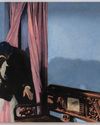
"The Fine Art of Going to the Pictures."
Dr. Banerjee in Dr. Kulkarni's Nursing Home at Chemould Prescott Road brings together 26 paintings featuring a series of dramatic scenes from Hindi and Bengali films. In conversation with Abhay Sardesai, artist Atul Dodiya talks about childhood trips to movie halls, painted figures gripped by tension, and the closeness and remoteness of cinematic images.
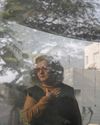
"To Finally Have Something of Your Own to Mine."
Dayanita Singh is the recipient of the coveted 2022 Hasselblad Award. Keeping the photograph at the centre, she speaks to Shreevatsa Nevatia about books, book objects, photo novels, exhibitions and museums.

OF DIVINE LOSS
Shaurya Kumar explores the relationship between the subject and object of devotion, finds Aranya.

THE PAST AND ITS SHADOWS
Neha Mitra visits two shows and three artists in Mumbai.
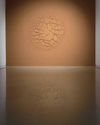
FORCE OF NATURE
Alwar Balasubramaniam dwells on absences and ephemeralities in his new work, states Meera Menezes.
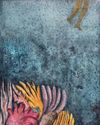
SHAPES OF WATER
Devika Sundar's works delineate the murky, malleable boundaries between the human body and the organic world, says Joshua Muyiwa.
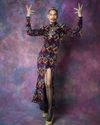
INTIMATIONS OF INTIMACY
Sunil Gupta shares his journey with Gautami Reddy.
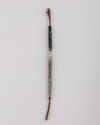
THE FRACTURED PROSPECT
Nocturnal landscapes as ruins in the making? Adwait Singh looks at Biraaj Dodiya's scenes of loss.
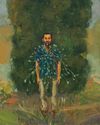
TEETERING BEYOND OUR GRASP
Meera Menezes traces Mahesh Baliga's journey from Moodabidri to London.